Study with National Research Group: anime’s fandom in ages 13-28 rivals Beyoncé’s, NBA’s
On May 20, anime streaming platform Crunchyroll and the National Research Group (NRG) released a study examining anime and its fandom. Titled “How Anime Became a Worldwide Cultural Force,” the study surveyed 29,000 “general entertainment consumers” between ages 13 to 54 from the United States, United Kingdom, India, Germany, France, Brazil, and Mexico. The study categorized 3,500 of those surveyed as anime fans, or viewers who “like” or “love” anime and watch anime content at least once per month.

According to a press release by Crunchyroll, “Anime now stands shoulder to shoulder with the biggest icons in music and sports among Gen Z. Globally, 54% of Gen Z make their love for anime known, putting it ahead of Kendrick Lamar (48%), nearly on par with Beyoncé (56%), and just behind LeBron James (59%) and Taylor Swift (60%).” The study supports these claims with its Anime Fanship Versus Celebrity Fanship graph. Among fans from 13 to 28 years old, 54% stated they liked or loved anime. This is two points under Beyoncé, five under Lebron James, and 17 points under the top-rated celebrity among Gen Z respondents, Lionel Messi.
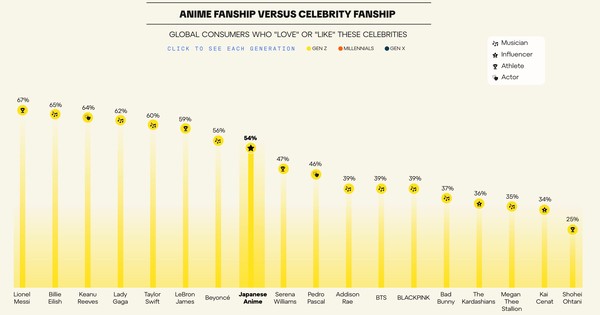
©National Research Group
While far lower in percentages, 42% of Millennials (ages 29-44) and 24% of Gen X (ages 45-54) consumers surveyed also stated they are anime fans. For these generations, anime falls short of cultural mainstays such as Keanu Reeves (Millennials 76%, Gen X 79%), Lionel Messi (59% and 49%), or Beyoncé (60% and 54%). Anime does outperform celebrities such as The Kardashians (29% and 19%), BTS (29% and 16%), and even Kendrick Lamar among Millennials (39% and 25%).
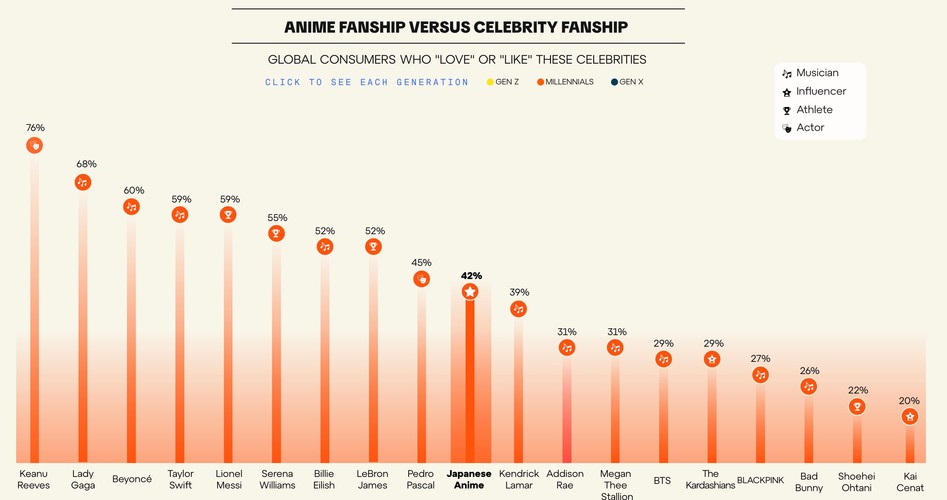
©National Research Group
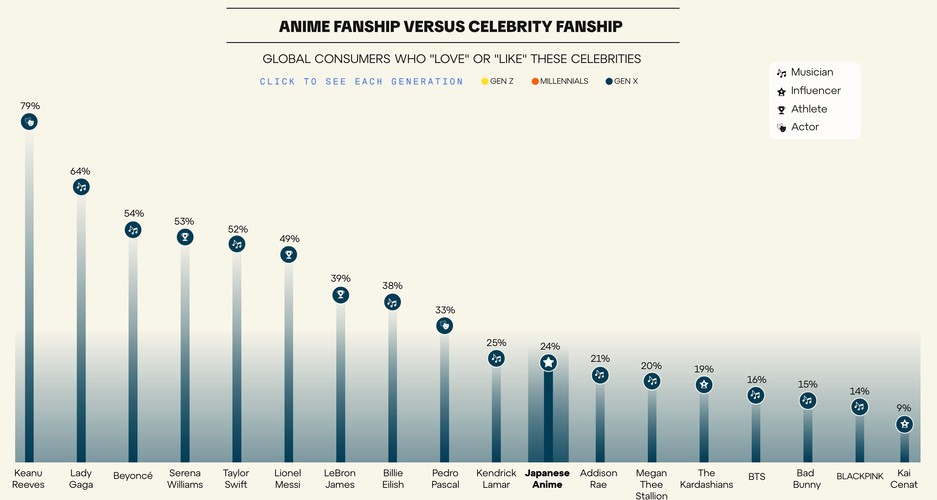
©National Research Group
While older respondents were more likely fans of traditional forms of sports (soccer, American football, basketball, and combat sports), only the Olympics, FIFA (soccer), UEFA Champions League (soccer), and the NBA (basketball) outperformed anime among Gen Z respondents.
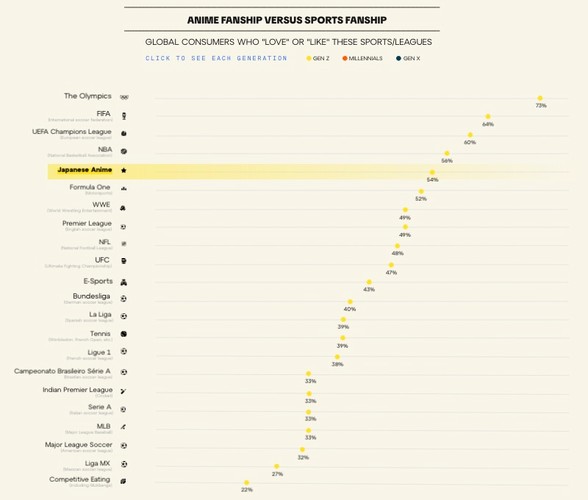
©National Research Group
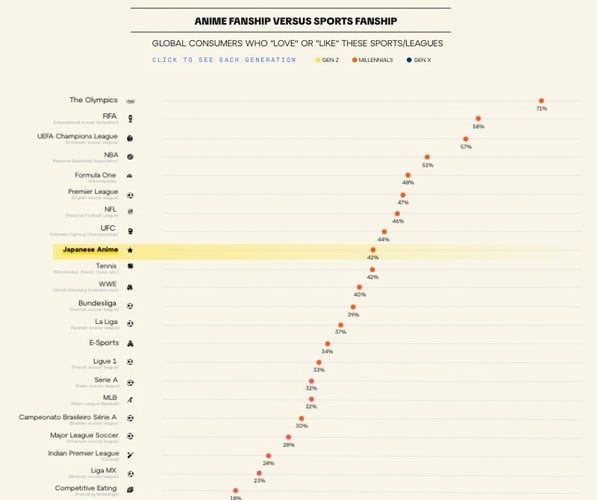
©National Research Group
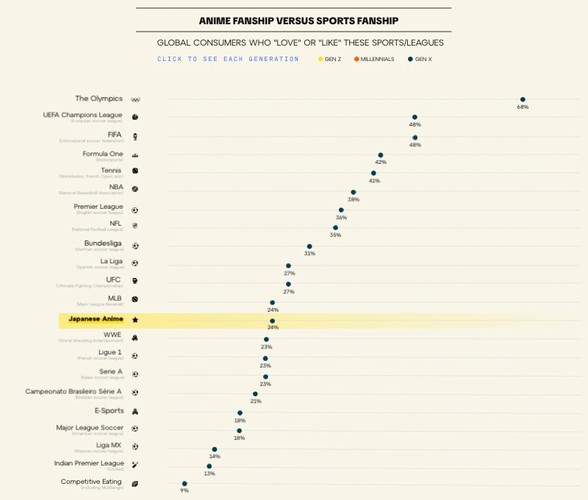
©National Research Group
The NRG study further examined how anime fans share their love of the medium with others. A majority (58%) of fans stated they talk to their friends, colleagues, or family about anime in person, followed by 43% with people they know on social media, and 42% watch anime with other people in person. The study does not categorize this survey into age demographics.
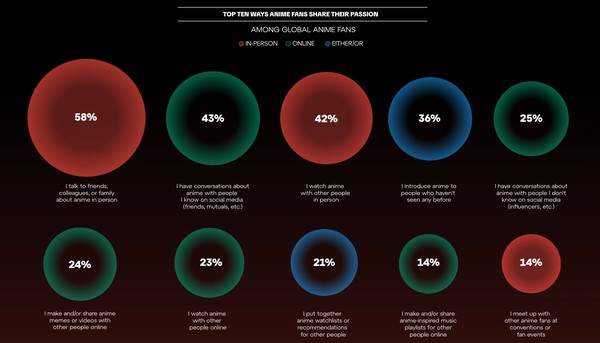
©National Research Group
When examining the top drivers for watching anime, Gen Z’s top responses were high-quality animation, compelling characters and relationships, and imaginative and creative storytelling at 37%, 35%, and 34% respectively. Among Millennials and Gen X, the responses were imaginative and creative storytelling, high-quality animation, and compelling characters and relationships.
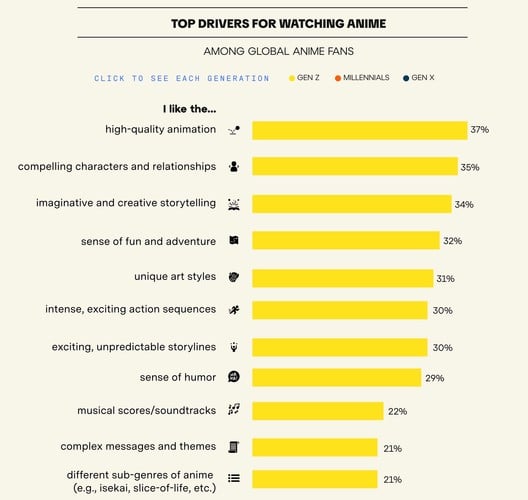
©National Research Group
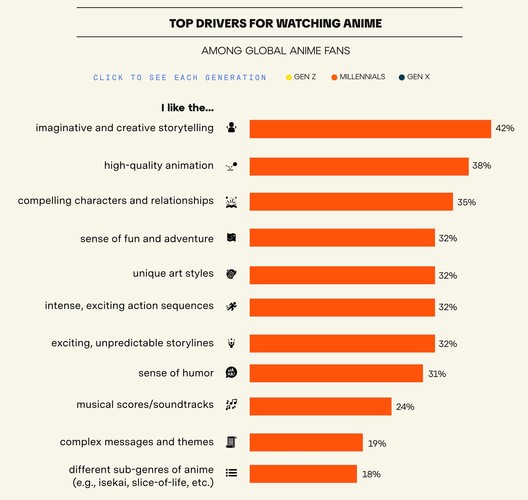
©National Research Group
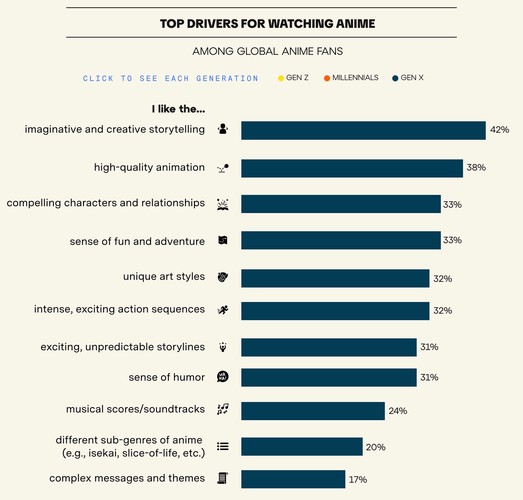
©National Research Group
As of press time, the study’s partners have not detailed their methodology. Grady Miller, CMO at NRG, commented on the study, “Anime is emerging as a truly global genre for young audiences, and a growing force for fandom in many countries around the world. Our research shows how increased accessibility and brilliant artistry have helped young audiences embrace anime not just as entertainment, but as a part of their identities.”
Crunchyroll representatives Gita Rebbapragada (Chief Operating Officer), and Punnoose Isaac (Senior Vice President, Center for Data and Insights) also commented on the study. “As a brand rooted in anime, we’ve long understood the depth of connection fans have with the anime medium,” Rebbapragada said. “These findings underscore what we’ve seen firsthand for a long time and provide a data-driven view of anime’s global and generational impact. It gives us another tool to better understand our audience and continue serving them in more meaningful ways.”
Isaac added, “This study reinforces what anime fans, and we at Crunchyroll, have always known: anime is a powerful cultural force that resonates on a deep emotional level. It helps shape identity, creates community, and offers connection in an increasingly complex world. The data offers some fresh perspectives on the ‘why,’ but the passion behind it is something we’ve always seen.”
Sources: Email correspondence, National Research Group

